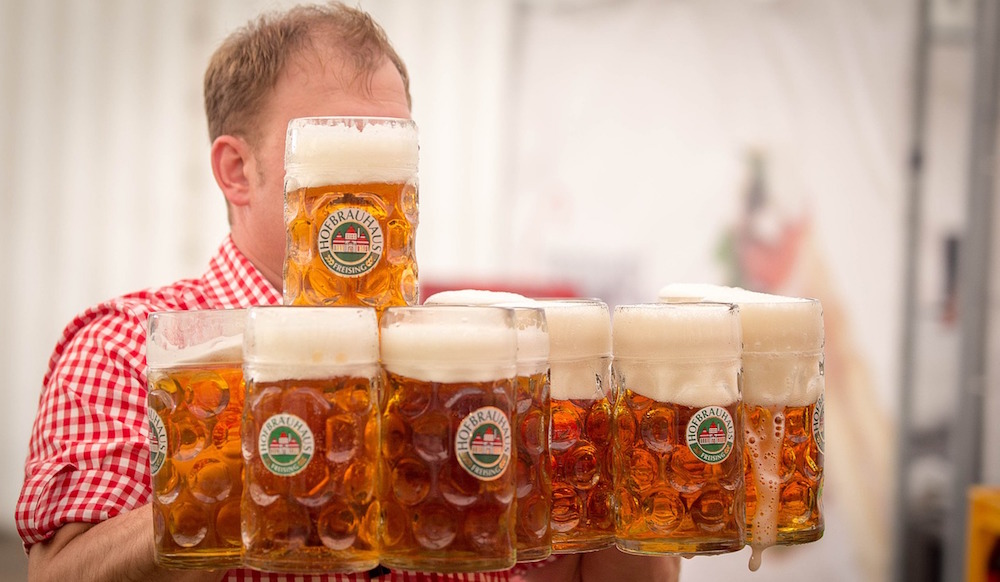What is Oktoberfest?

This Bavarian bacchanal started in 1810 as a knees-up for the citizens of Munich to celebrate the marriage of their Crown Prince Ludwig to Princess Therese von Sachsen-Hildburghausen. The townsfolk liked it so much they did it again, and over the years the festival grew. At some point, wise heads shifted its run from October to the warmer nights of September. This allowed visitors to enjoy the gardens outside the tents for longer without feeling chilly. The last weekend of the festival remains in October, however, and so the name has stuck.
At first, beer was only served outside the fair’s grounds, but of course that was never going to last for long. These days visitors regularly get through over six million litres each year. The beer is served in one-litre glasses, called a Mass, this year which will cost between €9.70 and €10.10.
A purity law
Oktoberfest is not a time for seeking out crazy brews from whichever craft brewer has the biggest beard or coolest tattoos. Authentic Oktoberfest beer must pass the famous German purity law, or Rheinheitsgebot, which restricts brewers to using only water, malt, hops and yeast to brew their beer.
Which beer at Oktoberfest?
The beer comes only from six breweries, all of them in Munich: Augustiner, Paulaner, Spaten, Löwenbräu, Hacker-Pschorr, and Hofbräu. Each of these breweries has its own tent set up within the grounds of the fair. It’s best to reserve seats before you arrive, but if you don’t, you can still take your chances. Get to the tents early to claim your place. Towels on chairs optional.
